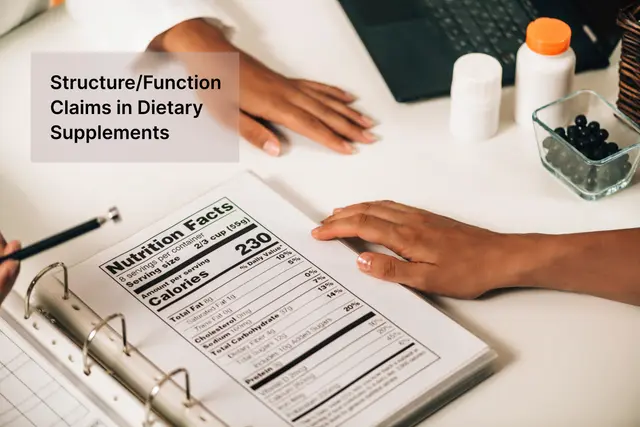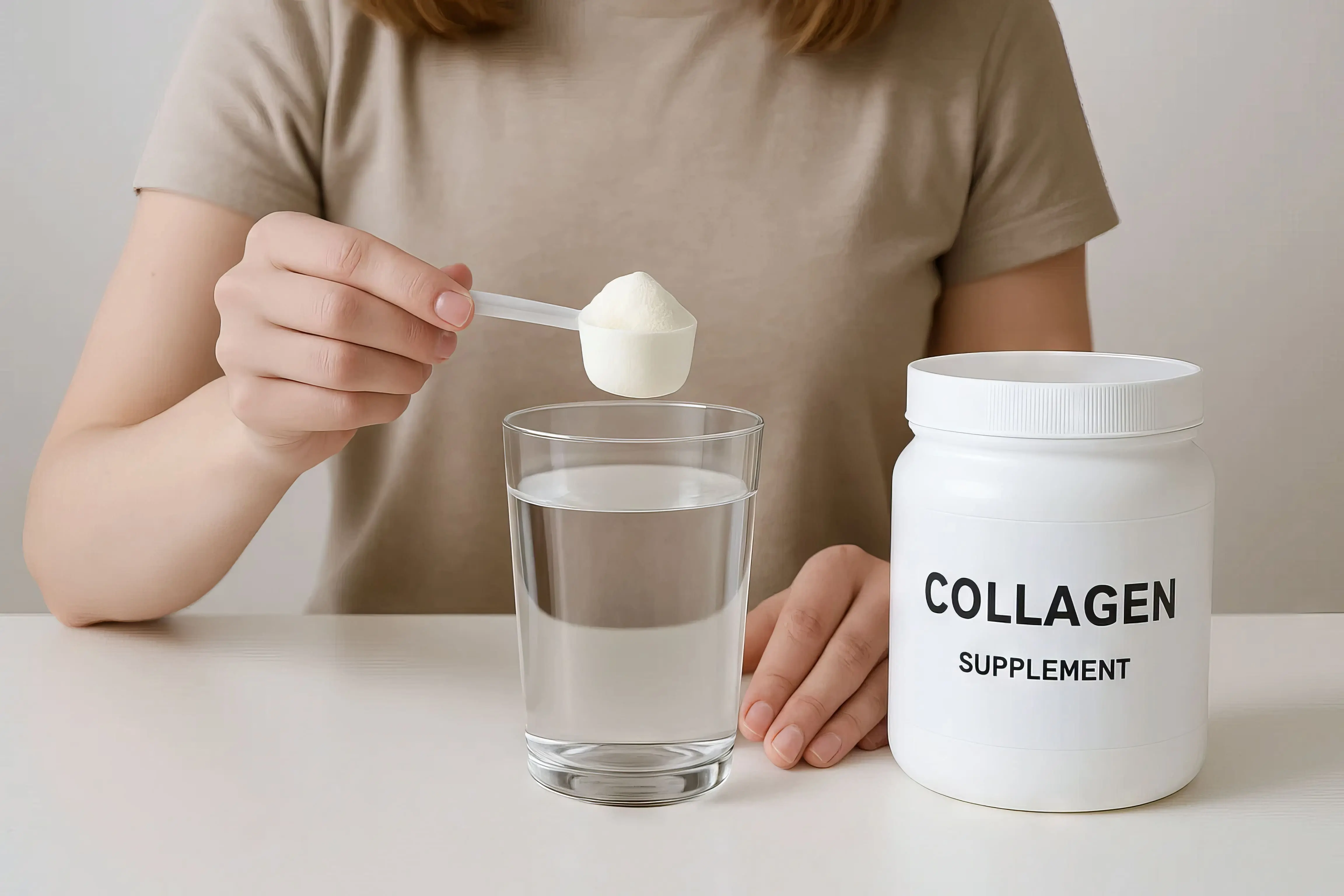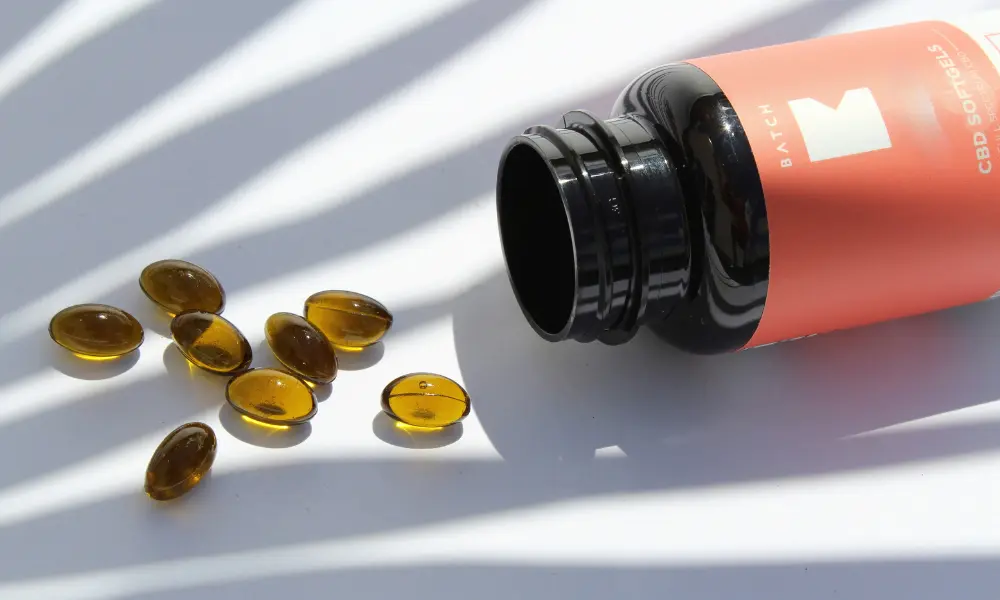Structure/Function Claims in Dietary Supplements

In the realm of dietary supplements, you often encounter various claims on labels that can guide your choices. These claims can either inform you about the benefits of certain nutrients or offer insights into how they can affect the body's structure or function. Structure/function claims specifically describe the role of a nutrient or dietary ingredient intended to provide an effect on the normal structure or function of the human body. Understanding these claims can aid you in making informed choices when selecting supplements. Let’s delve into what structure/function claims entail and how they are crucial in the dietary supplement industry, supported by insights into permissible practices and the importance of working with professional dietary supplement manufacturers to ensure compliance and quality.
Key Takeaways
- Structure/Function Claims Must Not Mention Diseases: These claims are strictly limited to describing how a supplement supports normal body functions—like digestion or immunity—without suggesting treatment, prevention, or cure of any disease. Terms like “cure” or “therapy” and any disease-specific references are prohibited.
- Manufacturer Responsibility with FDA Notification: While FDA pre-approval isn't required, manufacturers must notify the FDA within 30 days of marketing a product with a structure/function claim. The manufacturer is solely responsible for ensuring the claim is truthful, non-misleading, and backed by adequate evidence.
- Compliance Requires Clarity in Labeling and Language: To remain compliant, brands must avoid symptom-related words, medical imagery, and drug comparisons. Working with expert supplement manufacturers like F.A.M.E. Health Labs ensures structure/function claims meet all regulatory standards and help protect brand credibility.
What Is a Structure/Function Claim?
What are Health Claims?
Authorized health claims link a food or supplement ingredient directly to reducing the risk of a specific disease. They require significant scientific agreement to ensure accuracy and are strictly regulated by authorities. Unlike structure/function claims, authorized health claims must have substantial evidence and are scrutinized before appearing on labels.
What are Nutrient Content Claims?
Nutrient content claims describe the level of a specific nutrient within a product, such as “high in fiber” or “low in fat.” These claims help consumers easily identify nutritional value, unlike structure/function claims, which explain how a nutrient supports body functions. They’re governed by strict guidelines to ensure clarity and truthfulness.
What are the Different Categories and How Do They Work?
Free
"Free" refers to products that contain an insignificant amount of a particular nutrient, such as sugar or sodium. For example, "sugar-free" means minimal sugar content per serving, typically less than 0.5 grams. Such claims help consumers with specific dietary needs make informed choices.
Low
"Low" means a product contains a small amount of a nutrient, like calories or sodium. For example, "low sodium" indicates the product has 140 mg or less per serving. This claim helps people manage dietary restrictions related to various health conditions.
Reduced/Less
"Reduced" or "less" signifies that a product has at least 25% less of a specific nutrient or calories compared to a reference product. This labelling helps consumers seeking nutrient moderation, offering a healthier alternative without sacrificing flavour entirely.
Learn About the Permissible vs. Impermissible Structure/Function Claims for Dietary Supplements
Are you able to suggest that your product has an impact on a disease?
No, structure/function claims must not suggest your product can diagnose, treat, cure, or prevent any disease. They should focus on how a nutrient supports normal body functions, adhering to guidelines set by dietary supplement manufacturer standards.
Absence of any reference to the specific signs or symptoms associated with a disease or disease group
Structure/function claims should avoid mentioning specific signs or symptoms associated with any diseases. These claims must focus on supporting normal body functions rather than implying direct health improvements related to specific health issues or conditions.
Mentions of Symptoms
While crafting structure/function claims, it's crucial to avoid mentioning specific symptoms of diseases. Instead, the focus should remain on the overall support of normal body functions and general well-being, without implying treatment or relief of any medical condition.
Name your product
When naming your product, avoid including terms that insinuate treatment or prevention of diseases. The name should emphasize the dietary supplement's intended support function without suggesting it as a substitute for medical drugs or therapies.
Composition of Supplement Formulation
The composition of your supplement formulation should be clearly stated without implying therapeutic benefits. You should focus on how each ingredient supports normal body functions and contributes to health, avoiding claims that suggest medical advantages.
Can you include a reference to an article in your claim?
No, you should not include references to specific articles or studies in structure/function claims. These claims should remain straightforward and focused on how an ingredient supports normal bodily functions without citing research to imply medical efficacy.
What words are not recommended to use?
Avoid words like "cure," "treat," "prevent," "disease," or "therapy" in dietary supplement labelling claims. These terms can suggest medical benefits, which are not applicable to dietary supplements, such as vitamins, and may violate labelling regulations. Focus instead on support and maintenance functions.
Refrain from using visuals or symbols that indicate disease treatment
Avoid visuals or symbols that imply disease treatment on your supplement labels. Images of medical equipment or symbols like a hospital cross suggest therapeutic benefits, which structure/function claims are not intended for. Stick to imagery that reflects general wellness.
Do not suggest that your supplement is an alternative to a drug.
Ensure your structure/function claims do not imply your supplement can replace medications. Claims should emphasize how the supplement supports the body's normal functions without implying that it serves as a substitute for prescribed drugs.
Avoid suggesting that your dietary supplement is safe or beneficial alongside regular prescription drug usage
Refrain from claiming that your dietary supplement is safe or effective for use with prescription drugs. Structure/function claims should solely describe how the supplement supports regular body functions without suggesting compatibility with prescription medications.
Who decides if a structure/function claim meets the required standards?
The responsibility falls primarily on the manufacturer to ensure that a structure/function claim complies with regulatory standards. However, the Food and Drug Administration (FDA) monitors these claims, assessing whether they truthfully reflect the role of the dietary ingredients without misleading consumers. Any misleading information can attract scrutiny and repercussions from the FDA. Therefore, collaborating with reputable custom supplement manufacturers can ensure compliance and uphold industry standards effectively.
How and where to submit your structure/function claim?
To submit your structure/function claim, notify the FDA by providing them with a claim’s substantiation form within 30 days of the product being marketed. This submission should include the text of the claim, evidence supporting the statement, and an explanation of your compliance. Ensuring alignment with FDA guidelines is crucial for avoiding potential issues. Utilizing packaging solutions that clearly and accurately represent these claims can further enhance product credibility.
Partner with F.A.M.E. Health Labs for Your Supplement Manufacturing
Partnering with F.A.M.E. Health Labs can significantly enhance the quality and compliance of your dietary supplement products. As experienced supplement manufacturers, they offer a comprehensive range of services, including custom supplement formulation, packaging solutions, and regulatory guidance. Their expertise ensures that your structure/function claims meet stringent standards, avoiding impermissible implications. By choosing F.A.M.E. Health Labs, you foster a partnership built on trust, professionalism, and a commitment to delivering exceptional products. Whether you're launching a new line or expanding an existing range, their solutions can help elevate your brand's reputation in the marketplace.
Final Thoughts
Understanding and utilizing structure/function claims correctly can be a powerful tool in marketing dietary supplements. Such claims help communicate a product's benefits in supporting normal body functions without implying any medical treatment attributes. While manufacturers hold the responsibility for claim accuracy, leveraging the expertise of reputable dietary supplement manufacturers, like F.A.M.E. Health Labs, ensures compliance and industry success. As you navigate the complex regulatory landscape, focus on transparency and adherence to guidelines to build consumer trust and promote well-being. Ultimately, this approach benefits not only your brand but also the consumers you aim to serve.
FAQs
What's the difference between a health claim and a structure function claim?
Health claims link a product to disease risk reduction and require scientific backing, while structure/function claims describe how ingredients support normal body functions without implying disease prevention. Each serves different marketing and regulatory purposes.
Do structure/function claims need FDA approval?
No, structure/function claims do not require FDA pre-approval. However, the manufacturer must notify the FDA within 30 days of marketing the product and ensure that claims are truthful and not misleading.
Are there specific examples of permissible structure/function claims?
Yes, permissible structure/function claims include statements like "supports a healthy immune system" or "promotes joint health." These claims focus on how a product aids body functions without referring to disease treatment.
What is the one criterion for a structure function claim?
The key criterion for a structure/function claim is that it must reflect how an ingredient supports or maintains normal body functions without suggesting disease prevention, treatment, of cure.



.png)




















.gif)


